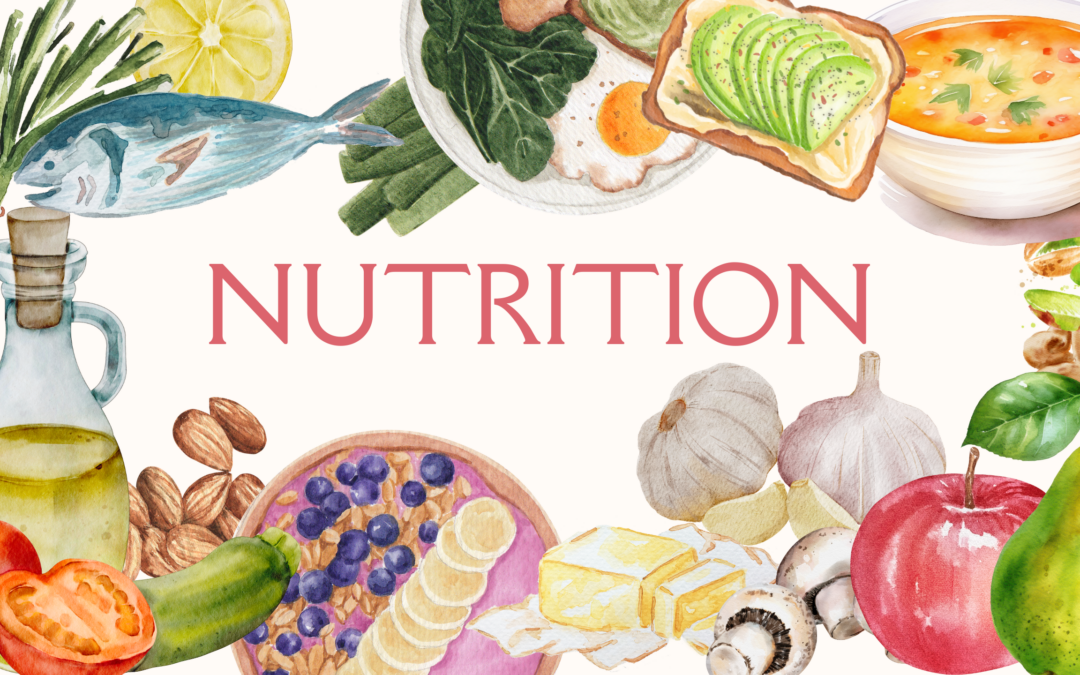I’m excited to continue diving into the Roots of Wellness here in Remedy & Rhyme, starting with the Root of Wellness, Nutrition. I’m passionate about holistic well-being, and nutrition is a huge part of the whole puzzle of wellness.
Let’s start by recognizing this truth: one size does not fit all. In a world where one-size-fits-all approaches often dominate, it’s crucial to acknowledge the individuality of each person’s needs. There are so many fad diets out there and labeled ways of eating, but what I believe in most is discovering what works for you.
While individualization is key, certain foundational principles can guide our nutritional choices. These include:
- Whole Foods: Emphasizing nutrient-dense, whole foods provides a spectrum of essential vitamins, minerals, and phytonutrients that support vitality. Processed foods contain many detrimental ingredients, so if it has an ingredient label a mile long, it’s probably best skipped. Opt for food that is as close to its source as possible (i.e. an apple and almond butter over an apple snack bar).
- Balanced Macronutrients: Ensuring a balance of carbohydrates, proteins, and fats is crucial for sustained energy and hormonal balance.
- Mind-Body Connection: Recognizing the impact of stress on digestion and metabolism emphasizes the importance of practices such as mindfulness, conection, and relaxation.
- Clean Foods: Since many herbicides and pesticides damage the gut, choose organic or naturally grown options whenever possible.
- Seasonal Eating: Embracing locally available, seasonal foods aligns our diet with nature’s cycles and provides a diverse range of nutrients.
- Gut Health: Prioritizing a diet rich in fiber, fermented foods, and probiotics promotes a healthy gut microbiome, influencing overall well-being.
- Remove Food Intolerances and Allergies: While I encourage people to eat a wide variety of healthy foods, there may be instances where certain foods need to be removed either temporarily or permanently.
- Eat Intuitively: Listening to our bodies to help balance food intake and avoid extremes fosters a sustainable and realistic approach to nutrition.

Throughout my own experimentation around what foods and style of eating works for me, I’ve become a big fan of the pro-metabolic approach and ancestral approach to eating, which is NOT a diet. Rather, it is a framework for supporting efficient energy production, hormonal balance, and overall vitality. Rather than promoting restriction, it encourages a nourishing and sustainable way of eating that aligns with the body’s natural processes.
If I had to choose one overarching philosophy it would be to eat in a way that is closest to how your ancestors ate before their diet was modernized. This might look a little different for everyone, depending on where your genetics hail from, but at its core is the basic element of eating whole foods. That’s why I listed that as principle number one in my last email. I can guarantee that if you change nothing else in your diet other than eliminating processed foods, your health will improve.
I can’t stress enough how crucial high-integrity, nutrient-dense foods are for our well-being. Most of our ancestors ate foods like animal fats, wild and pasture-raised meats and fish, eggs from many different animals, organ meats, sourdough bread (made from various grains, not just wheat), organic fruits and veggies, soaked and fermented nuts, seeds, and grains, high-quality dairy (not only from cows), raw honey, herbs, and salt. These powerhouse foods have been a game-changer for me, providing the essential nutrients our bodies crave. Make each bite count – it’s an investment in your health and you’ll find yourself more satiated and energetic.
If you are feeling encouraged to implement more whole foods into your life, I’m here to cheer you on and offer support!
To many of us (myself included earlier in my life journey), the thought of eliminating processed foods feels daunting. How do we make time to cook meals from scratch every day?? However, what I’ve learned over the years is that meals can be kept simple, and batch prepping and cooking in bulk can go a long way!
Another concern many have is that well-sourced whole foods can be more expensive. While that might be true in some instances, I’ve actually found that many of the most nutrient-packed foods are actually some of the most cost-effective. For instance, organ meats are absolutely packed with vitamins and minerals yet are often discarded by butchers. A whole chicken will provide several meals for a small family. Bone broth is filled with nutrition and does not require much cost or active effort. Dry beans and rice are quite low cost but can be easily cooked to provide valuable nutrition.
Nutrient-dense foods may look more expensive, but dollar for dollar you will probably find that they keep you satiated longer than processed foods. In fact, recently I noticed that a bag of Doritos at my local grocery store is the same cost as a large container of organic cottage cheese. Which one of these will provide the most nutrition and keep us satiated longest? Although health is never guaranteed, these whole foods may even reduce medical expenses in the future by keeping you healthier.
Without delving too deeply today, I’d like to offer a few snack suggestions that are on the easier side to prepare. These practical ideas can seamlessly fit into your routine without overwhelming you. Feel free to screenshot or download this image to save for future reference.

As an added health bonus, you may also choose to eat locally and seasonally, giving yourself the added benefits of very fresh food. Of course, it’s important to not get overwhelmed when you are making changes, so start where you are able and do what fits. Baby steps over time can be just as effective as giant leaps, or even more effective because they create healthy habits.
Wishing you love and chamomile 💛 ,
Kimberly





